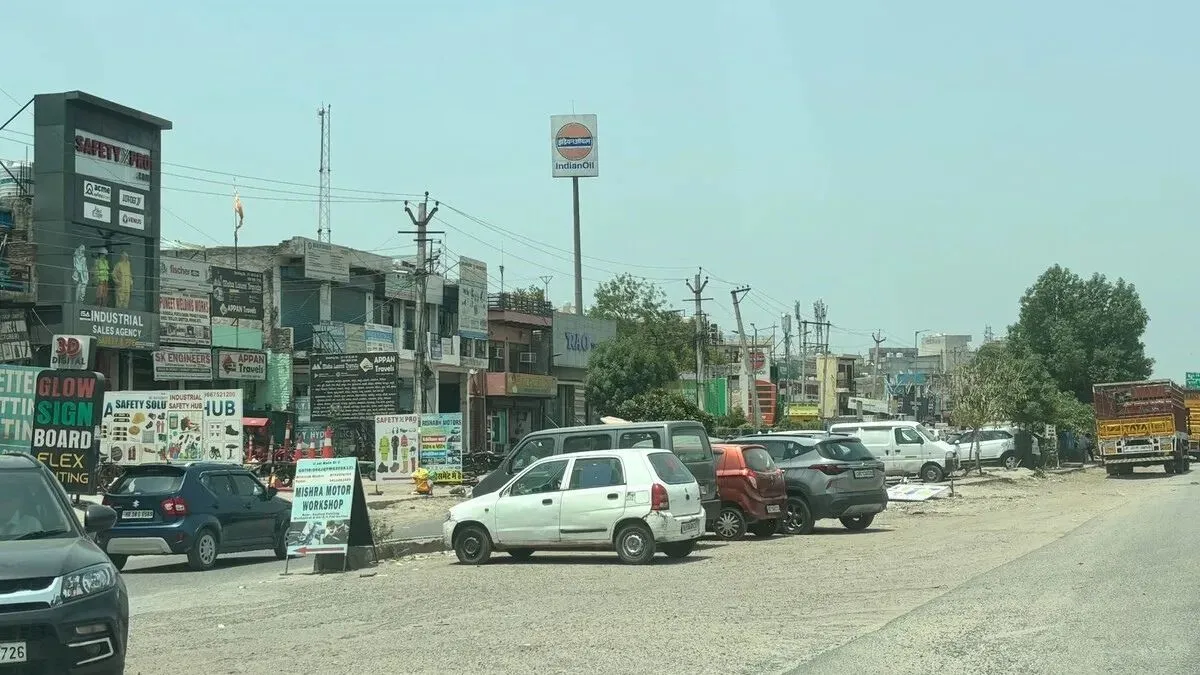- By Akansha Pandey
- Wed, 29 Oct 2025 05:35 PM (IST)
- Source:Jagran News Network
To enhance safety and improve travel on highways and expressways, the National Highways Authority of India (NHAI) is set to launch surveys using AI-based Network Survey Vehicles (NSVs). The process to implement this technology has been expedited.
These vehicles will effectively perform an 'ultrasound' of the road infrastructure, identifying various deficiencies.
Technology And Scope
Vehicle System: The survey will utilise a 3D laser-based NSV system equipped with high-resolution 360-degree cameras, Differential Global Positioning System (DGPS), Inertial Measurement Unit (IMU), and Distance Measuring Indicator (DMI).
Automatic Detection: This system can automatically detect and report defects like surface cracks, potholes, and patches without human intervention.
Coverage: NHAI plans to divide 23 states into zones and deploy NSVs to cover 20,933 kilometres of roads.
Data Collection: The system will gather data on the condition of roads and footpaths, including defects. It will also identify issues like faulty railings, illegal cuts, and improper entry and exit points.
Process And Reporting
Data Upload: Collected data will be uploaded directly to NHAI's AI-based portal, Data Lake.
Analysis: A team of NHAI experts will analyse the reports generated by the system.
Improvement Work: Based on the expert team's findings, improvement and repair work will be carried out.
Frequency: Surveys will be conducted before starting work on new projects (2,4,6,8-lane) and then every six months thereafter. This will track the initial condition, changes made, and work progress.
Benefits: Transparency And Efficiency
Speed: AI surveys are expected to save considerable time compared to previous methods involving manual teams or drones.
Transparency: Reports will be uploaded directly to the NHAI portal, making them accessible to officials at all levels, including central government ministers.
Accuracy: AI-based reports are difficult to alter, ensuring greater accuracy and reliability compared to older methods where tampering was possible.
Monitoring: The system will verify if repair work instructed at the local level has actually been completed.
Accountability And Expected Impact
Holding Officials Accountable: If the survey reveals that instructed repair work hasn't been done, the concerned project director will be held responsible.
Improving Road Conditions: This initiative aims to address the poor condition of dilapidated highways and expressways across the country, which often go unaddressed despite public complaints.
- Example: The Delhi-Gurugram Expressway is cited with issues like damaged railings, uncovered drains, improper entry/exit points, over 30 illegal cuts, damaged service lanes, and potholes (including one on the Hero Honda Chowk flyover for months) that haven't been fixed. The AI survey is expected to bring these issues to light definitively.
Expert Perspective: Technology Vs. Accountability
JS Suhag, former technical advisor to NHAI, offers a critical perspective. He argues that simply adopting modern technology won't improve the system. Making officials accountable is crucial.
Official Responsibility: Project Directors and Regional Officers should personally survey roads in their jurisdiction weekly and file reports, rather than relying solely on independent engineers.
Delhi-Gurugram Example: He criticises the poor state of the Delhi-Gurugram Expressway, calling it potentially the "most dilapidated expressway in the country," despite its heavy use and proximity to NHAI headquarters. He questions why officials haven't been held responsible sooner.
Also Read: Ranchi Weather Alert: IMD Warns Of Heavy Rain, Strong Winds Until Oct 30 Due To Cyclone Montha
Basic Maintenance: Suhag questions the need for tenders to fix fundamental issues like railings, lights, potholes, and illegal cuts, suggesting these should be addressed promptly by accountable staff.
He believes that unless officials are held accountable for road conditions, no survey, AI-based or otherwise, will bring significant benefit.

